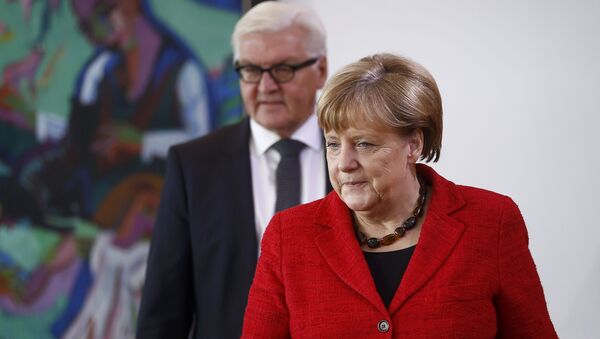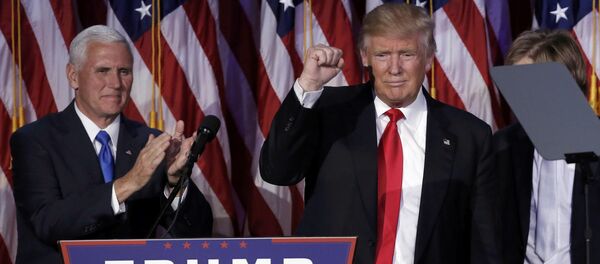The first German politician to comment on Trump's victory was Defense Minister Ursula van der Leyen, who told German broadcaster ARD the result was a "huge shock."
Van der Leyen described the result as "not a vote for him but rather against Washington, against the establishment."
She also anxiously questioned US commitment to the NATO alliance, the financing of which Trump has repeatedly criticized.
"Of course we Europeans, as a NATO ally, know that if Donald Trump becomes president, he'll ask: What are you contributing to this alliance?" Van der Leyen said.
German Foreign Minister Frank-Walter Steinmeier acknowledged that his government would have preferred a Hillary Clinton victory, but accepted the decision of the US electorate.
"The result is different from what most people in Germany had hoped to see. But of course we accept it," Steinmeier said, adding that he expected Trump's victory to have serious consequences for international politics.
"Nothing will be easier. Much will be harder," Steinmeier said.
He urged the US and Europe to maintain "functioning transatlantic relations," which he described as "something like the foundation of the West."
"Above all, however, I hope that we will not face larger rifts in international politics. During the election campaign, Trump expressed criticism not only of Europe, but also of Germany. I think we will have to get used to the idea that US foreign policy will be less predictable for us and we will have to get used to the idea that the US will tend to make more decisions on its own," Steinmeier said.
"It will be difficult, it will be harder than the previous administration but it is a democratically elected president. We will work with him as with all other presidents," Schulz told Europe 1 radio.
German Chancellor Angela Merkel, who faced sustained criticism from the US President-elect during the campaign as a result of her refugee policy, gave a conditional welcome to the next US president.
"Whoever the American people elect as their president in free and fair elections, that has a significance far beyond the USA," Merkel said.
"Germany and America are bound by common values. These include democracy, freedom, respect for human rights and dignity, irrespective of origin, skin color, religion, gender, sexual orientation or political attitude."
"On the basis of these shared values I offer the future President of the US Donald Trump close co-operation," Merkel said.
The German government remained in disbelief about the possibility of a Trump victory until just a few weeks ago, when its diplomats attempted to make contact with the Trump campaign team for the first time.
The Brooklyn headquarters of Hillary Clinton was "constantly visited by diplomats," but the German foreign office had only recently begun to establish relations with Trump, German diplomats told Der Spiegel.
Gevorg Miryazan, Associate Professor at the Department of Political Science at Russia's University of Finance, told Sputnik that Trump's victory was a big surprise for the European establishment.
"Europe really didn't expect Trump's victory," Miryazan said.
"Until now, Europe understood how it could work with Hillary. However, for the moment it hasn't got a clue how to work with Trump," Miryazan said, acknowledging that the effect of Trump's victory is also an unknown for Russia.
"We must admit that Russia doesn't understand that yet either. But the main thing is to work with who is elected, that's the normal situation," the analyst said.





